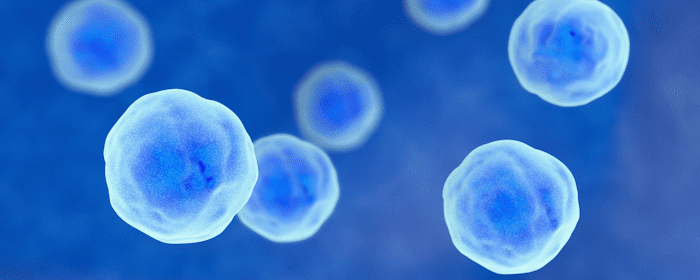With nearly 15 million people affected worldwide each year, stroke continues to be the most prevalent cerebrovascular disease. Responsible for over 5 million deaths and another 5 million individuals suffering long-term disabilities, stroke also is the leading cause of mortality and morbidity worldwide.
Although there have been significant advances in both pharmacological and surgical therapies designed to treat the effects of stroke, effective therapy remains limited and primarily focused on managing the symptoms associated with a stroke rather than treating the causing factors or preventing the stroke at the onset.
Recently regenerative medicine, also known as stem cell therapy, and specifically mesenchymal stem cell (MSC)-based therapy has been identified as a potentially effective strategy for a wide range of diseases and health conditions, including stroke.
In this review, Li et al. examine current preclinical and clinical data from trials using MSCs in the treatment of stroke, the mechanisms underlying MSC-based therapy for stroke, and the challenges associated with the timing and delivery of MSCs.
Initial preclinical studies of the application of MSCs in the treatment of stroke demonstrated that transplantation of MSCs following ischemic stroke promoted improvement of cerebral function protected the ischemic neurons, and repaired brain damage. However, these studies were conducted in young and healthy subjects and failed to factor in the presence of comorbidities, such as diabetes and hypertension, more commonly observed in ischemic stroke patients.
Considering that 75% of strokes occur in the elderly and/or those with the previously mentioned comorbidities, the authors of this review focused their review on studies that incorporated these two factors into their trials.
While these preclinical studies of MSC-based therapy for stroke demonstrated promising results, including improved blood-brain barrier integrity, increased white matter remodeling, and improved neural repair, the authors point out that there has been a limited number of preclinical studies conducted and call for additional preclinical studies specifically utilizing the comorbidity model.
Although treatment of stroke using MSCs has been established to be safe and feasible in phase I and II clinical trials, there have been mixed findings as to the therapy’s efficacy. As a result of these varied findings, the overall efficacy in the treatment of ischemic stroke remains controversial. The authors consider several reasons for the inconsistency of results observed in these trials, including the varied number of patients, doses, and type of cell delivery, the timing of the cell therapy, and the treatment modalities used in these trials; the authors also call attention to the different locations, extent, and severity of lesions used in these trials.
As a result of the inconclusive results surrounding the effectiveness of MSC-based therapy for the treatment of stroke in these clinical trials, the authors call for more optimized and well-designed large-sample multicenter studies to evaluate the therapeutic efficacy of MSCs more thoroughly in ischemic stroke.
While the underlying mechanisms of MSC-based therapy for stroke have not been fully explained or understood, a review of several studies has demonstrated that MSCs protect against stroke through multiple mechanisms, including direct differentiation, paracrine effects, and mitochondrial transfer.
Before MSCs can be widely applied in clinical practice, Li et al. highlight several challenges that need to first be considered. These challenges include determining the optimal time for MSC administration during the acute stroke stages, further understanding the best treatment, conditions, and strategies to maximize the regenerative potential of MSCs, identifying the simplest and safest route of MSC delivery, and identifying the best source of MSCs for stroke treatment.
The authors conclude this review by recommending future preclinical and clinical studies that consider the adoption of a well-designed randomized controlled study design and method rigor and intervention measures to determine the effect of MSC therapy in the treatment of stroke.
Even with considering the above recommendations, MSCs continue to demonstrate exciting potential as a means to protect neurons and improve outcomes and overall quality of life for stroke patients.
Source: “Mesenchymal Stem Cell-Based Therapy for Stroke – NCBI.” 9 Feb. 2021, https://www.ncbi.nlm.nih.gov/pmc/articles/PMC7899984/.


 St. Petersburg, Florida
St. Petersburg, Florida
